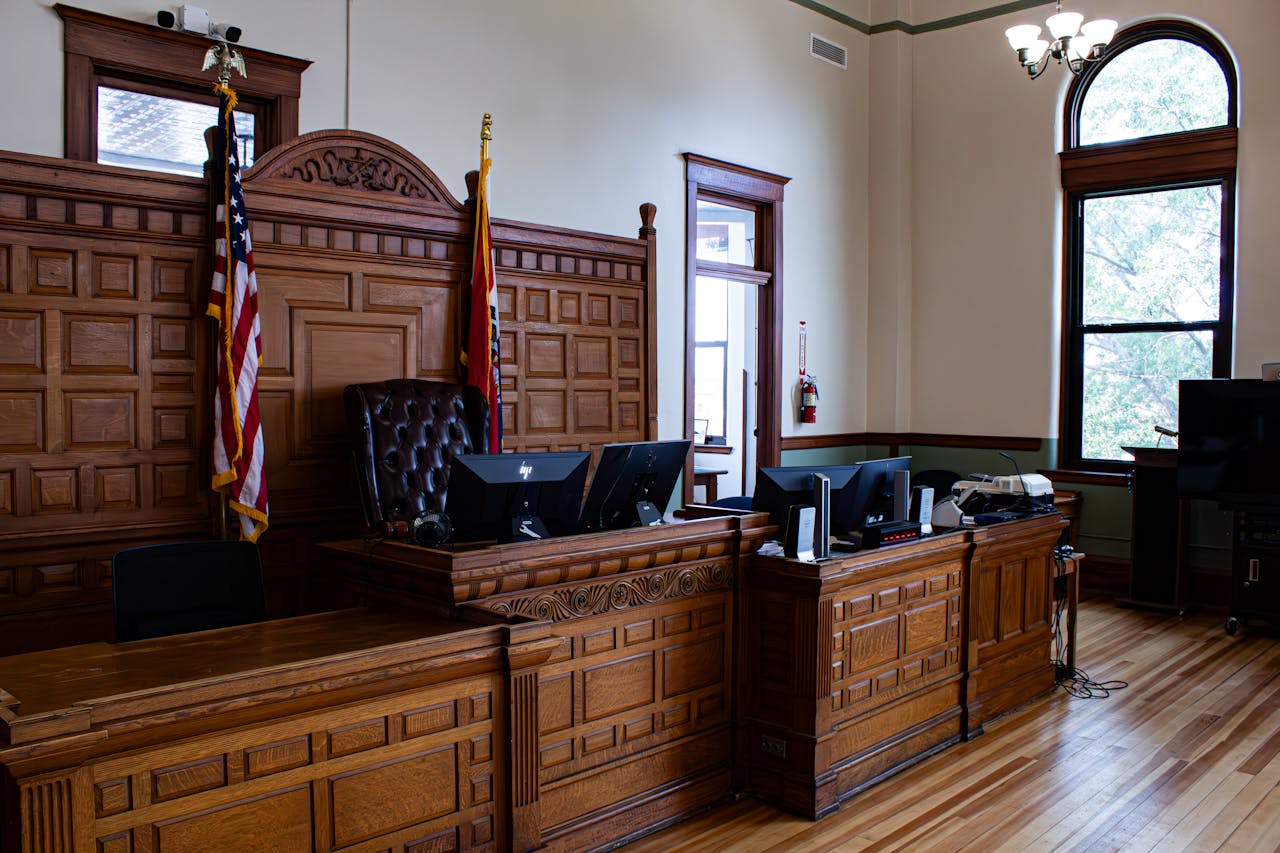
The purpose of this article is to explain the legal consequences and implications of the Child Abuse Central Index (CACI).
The purpose of this article is to explain the legal consequences and implications of the Child Abuse Central Index (CACI).
Discover the best strategies for handling Child Protective Services interviews with your child at their school, including legal rights and empowering tips for parents.
It depends. Generally, CPS cannot interview your child at their school. However, three exceptions apply.
Child Protective Services (CPS) may conduct interviews with your child at their school as part of their investigation process if one of the following exceptions applies:
CPS may interview a child at school, if a parent with legal custody of the child provides consent for the interview to be conducted at school.
If one parent does not have legal custody of the child, the consent of that parent is not enough to meet this requirement.
If a parent gives consent once, that does not give CPS the ability to repeatedly interview the minor. The consent is only good for the specific interview request at that time and place.
Additionally, parental consent must not be obtained through threat, coercion, or undue influence.
The parent may also state the terms in which the interview can take place (for example, during morning recess, with Ms. Jackson present, for less than 20 minutes). Parental consent may have limitation which should be respected.
Law enforcement cannot be present unless the parent has also given permission for law enforcement to be present.
For this requirement, CPS must have attained a valid Court Order prior to conducting the interview. If CPS is in the interview, CPS must have an Order giving CPS permission to conduct the interview. If law enforcement has an Order, the Order does not necessarily apply to CPS.
An exigent circumstance is a circumstance where there is reasonable cause to believe the child would likely experience serious bodily harm or other abuse in the time it would take to obtain a court order, attain parental consent and the terms of the terms of the brief interview cannot be met.
In this instance, law enforcement may be present.
In this instance, CPS may only conduct an interview if there is reasonable suspicion that the child or a sibling of the child is a victim of abuse or at significant risk of abuse. The brief interview should be “brief”, which should be as short as possibly to attain key information, but should generally be less than 30 minutes long. Law enforcement may not be present during the brief interview.
Additionally, several safeguards must be in place, to satisfy the requirements of the brief interview:
These interviews are typically conducted when there are concerns about the child’s safety or well-being. It is important to understand the purpose of these interviews and how they may impact your child’s experience.
During these interviews, a CPS worker will speak with your child to gather information about their living situation, any possible abuse or neglect, and their overall well-being. The interviews are conducted in a sensitive and age-appropriate manner to ensure the child feels comfortable and safe.
It is crucial for parents to understand that these interviews are a part of the CPS investigation process and are not meant to be punitive towards the child or the parent. The goal is to ensure the child’s safety and well-being. By understanding the purpose and process of these interviews, parents can better navigate the situation and support their child.
As a parent, you have legal rights when it comes to CPS interviews at school. It is important to be aware of these rights to protect yourself and your child throughout the process. Some of the legal rights and regulations related to CPS interviews at school include:
It is important to familiarize yourself with the specific legal rights and regulations in your jurisdiction, as they may vary. Consulting with an attorney who specializes in family law can help you understand your rights and navigate the CPS interview process more effectively.
Facing a CPS interview at school can be stressful for both parents and children. However, if you have agreed to CPS interviewing your child, there are steps you can take to prepare yourself and your child for the interview:
By taking these steps, you can help alleviate some of the anxiety your child may feel and ensure they are prepared and as comfortable as possible for the CPS interview at school.
Open and effective communication with school officials is essential when dealing with CPS interviews at school. If you have agreed for CPS to interview your child at school, let the school know as soon as possible. Clearly communicate all details (such as, if you have agreed for law enforcement to also be present). Here are some tips for communicating with school officials:
Remember, school officials are there to support your child’s well-being. By maintaining open communication, you can work together to navigate the CPS interview process more effectively.
Effective communication with Child Protective Services is crucial.
Here are some tips for communicating with CPS:
By maintaining open and respectful communication with CPS, you can ensure that your voice is heard and that your child’s well-being remains the priority throughout the process.
Seeking legal advice and support is essential when dealing with CPS interviews at school. Here are some reasons why consulting with an attorney can be beneficial:
By seeking competent legal advice and representation, you will navigate the CPS process with clarity and confidence to ensure your rights and interests are protected.
••••••
The attorneys at Minella Law Group are skilled in new or existing cases involving child welfare / CPS. Please call our family law office today to schedule a complimentary consult with one of our attorneys.
The purpose of this article is to explain the legal consequences and implications of the Child Abuse Central Index (CACI) that individuals should be aware of to protect their rights and interests, as well as the Grievance Hearing Process
The goal of this article is so you can better understand your rights and responsibilities and frequently used terminology, when dealing with Child Protective Services in the State of California.
Probate Court can refer cases to Juvenile Dependency under CA Probate Code Section 1513 (b).
What is a relative or close family member do when Child Welfare removes a minor child from his or her parents? Do Relatives have rights? Do close family friends have rights?
San Diego currently has three different courthouses, each of which is home to at least one Department set aside for Juvenile Dependency Hearings.
The main Juvenile Courthouse is at 2851 Meadowlark Drive in central San Diego. This Courthouse is often known as the Meadowlark Juvenile Court because the Courthouse itself is tabbed to hear only matters involving children. Three Juvenile Dependency departments are strictly for Juvenile Dependency, although, on occasion, Child Welfare cases will go to the Assistant Presiding or Presiding Judge’s Courtroom for a hearing. However, this usually only occurs during the holidays or when a Judge assigned to a Juvenile Dependency courtroom is out.
The Juvenile Dependency Business Office is located on the 2nd Floor while all the courtrooms are on the 1st floor. This Courthouse offers free parking in the main lot but has no vending machines or cafeterias.
As to San Diego’s East County Division, one Juvenile Dependency Department hears only Child Welfare cases. This court is located at 250 East Main Street in El Cajon. Both the Juvenile Business Office for East County and the one courtroom are on the 6th floor. This courthouse has vending machines containing light snacks and beverages on the main floor and second floor. Free parking is sometimes available in the Courthouse parking lot.
A Coffee Cart on the sidewalk between the Courthouse and Magnolia Theater is sometimes open in the mornings, allowing for fresh made caffeinated beverages as well as an array of pastries. However, when a Jury Trial is taking place, the lot becomes crowded and visitors often need to park on the street. Some of the streets only have two hour parking, so make sure to take note of any signage and move your car, when needed.
One Department in North County is utilized exclusively for child welfare proceedings. Although this courthouse was recently renovated, the Juvenile Dependency Courtroom was not one of the renovated spaces.
This courthouse often has enough spaces in the parking lot for all visitors, but driving the lot a few times to find a space is sometimes required. The Cafeteria/Deli in this Courthouse serves beverages, pastries, sandwiches, and other snacks.
Both the Central Courthouse and Chula Vista Courthouse used to each have a Juvenile Dependency Courtroom. Those Departments were closed around 2018, before the COVID pandemic.
To remove a child from a home, without parental consent or exigent circumstances, CWS or law enforcement need to have attained a Warrant from a Judge. If CWS has removed your child, you should act quickly to seek out advice from an experienced attorney.
During the Summer of 2023, the County of San Diego began implementation of their newly created Child and Family Well-Being Department. Branded as a “new approach” to empowering parents, child, and extended family support, the goal is to utilize resources to strengthen the family unit and address issues that may lead to abuse or neglect.
Ideally, the unit is tasked with reducing child protective actions, and most notably, actions that separate children from their families, with a cross-sector collaborative approach.
Child Welfare Services, Behavioral Health Services, Juvenile Probation, San Diego County Office of Education, First Five, along with community based organizations, tribal partners and families with relevant lived experiences worked together to create the structure of the organization and the implementation of the overall plan.
Accessing plan prevention resources seems simple enough. Resources can be accessed by self-referral, probation, CWS or CPS (including a hotline referral), or any of the numerous community partners. From there, the family will need to actually utilize the services provided in the Prevention Hub.
Sometimes, issues persist. Sometimes, although some in the family are committed to making the family stronger, others are not, or different people have different approaches. At times, families do not believe their children are truly at risk, when contacted. Some families, choose other forms of assistance. Some, do not get any help.
However, when child welfare believes that children are being abused or neglected or at significant risk for abuse or neglect, CWS will still file a petition to remove the child. If reasonable efforts can be made to keep a minor in the home, those efforts should be taken to keep the minor in the home. Yet, if the family has a history of declining services or is unwilling to collaborate with CWS, that may be enough to determine that no reasonable efforts would quash the situation.
From the start of the first contact, you can hire an attorney!
You do not need to speak with anyone without an attorney present. But that attorney should be an experienced child welfare attorney. Julie is a Child Welfare Legal Specialist, a designation by the State Bar of California, the National Association of Counsel for Children (NACC), and the American Bar Association. Julie has not only passed a written test but undergone a review from peers to attain and maintain the child welfare legal specialist certificate.
Minella Law Group can help, consulting with an experienced family law attorney who understands the issues can help alleviate your worries, contact us today for a complimentary consultation.
In California, the Office of the Attorney General controls the Child Abuse Central Index (aka CACI). CACI is a registry containing names of those whose the Attorney General deems have abused children.








